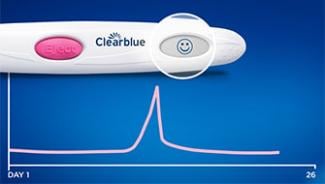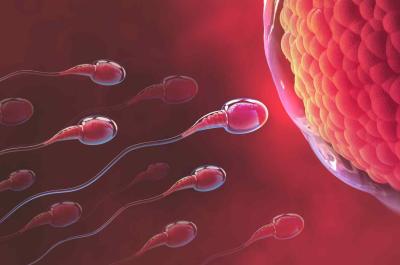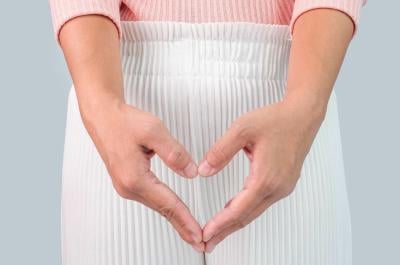
You can only get pregnant a few days each menstrual cycle. These days are known as your fertile window and are the days leading up to and including the day of ovulation, which is when an egg is released from the ovary. There may, however, be some cycles when an egg is not released. This is known as anovulation and often affects young girls who have just started their periods or women who are approaching menopause. It is also possible for healthy women to occasionally have a cycle where they do not ovulate.
So, what is anovulation, and what causes you not to release an egg? What symptoms do you have when you don’t ovulate? And what can you do about it? If you’ve asked yourself these questions, then read on to learn all about anovulation.
1. What is ovulation?
Ovulation is the process of releasing a mature egg from the ovaries. You are at your most fertile on the days leading up to and on the day of ovulation. This window lasts around 6 days, and you’re most likely to conceive during this time if you have unprotected intercourse.
2. What is anovulation?
Anovulation is when an egg is not released from your ovary during a menstrual cycle. It is not uncommon for this to happen occasionally and you may have an anovulatory cycle one month, then ovulate normally the next.
You may have an anovulatory cycle without knowing since it’s possible to still have your period normally. If you are not ovulating, your periods may stop or you may notice if you are using an ovulation test and do not see your LH surge. Irregular periods could also be a sign that you may not be ovulating consistently.
Anovulation can be chronic, which means a woman doesn’t ovulate for many cycles in a row.
3. Why haven’t I ovulated?
Anovulation is common during certain stages of a woman’s reproductive life:
- Girls who have recently started menstruating. In the first year following a period, it’s not uncommon for girls to have anovulatory cycles.
- Women close to menopause. Women aged between 40 and 50 are more likely to experience a shift in hormones, which can lead to anovulation.1
It’s possible to have anovulatory cycles while you are fertile and there are many reasons why. Below are some potential causes. If you are concerned you are having anovulatory cycles you should consult your doctor.
- Polycystic ovarian syndrome (PCOS). This refers to a condition where a hormone imbalance has caused irregular cycles and is characterized by small cysts or underdeveloped egg-containing follicles in the ovaries. It can also cause excess body hair, oily skin, weight gain, depression, and infertility. Some women may have PCOS without experiencing these symptoms and may not know they have the condition until they try for a baby. If you are concerned or suspect you have PCOS, speak to your doctor. If you have been diagnosed with PCOS, ovulation tests or fertility monitors may give you misleading results, so it’s advisable not to use them. Women with PCOS may have high levels of estrogen and LH throughout their cycle, which can give an LH surge (peak fertility) result even if ovulation will not occur.
- Being under or overweight. If you are under or overweight this can also prevent you ovulating. Reaching a healthy weight can help your fertility and reduce the risk of ovulation disorders.
- Over-exercise. Too much exercise for an extended period, such as long-distance running, can also cause ovulation to stop. Reducing the intensity and duration of exercise can help get things back to normal.
- Stress and anxiety. It is advisable to speak to your doctor if you believe your levels of stress are preventing you from ovulating.
- Medication. Some medication may affect ovulation, including contraception. Always check any medication you are taking.
- Other medical problems. Disorders of the thyroid gland or pituitary gland can also cause anovulation. If you have concerns about this being a cause of anovulation, please speak to your doctor.
4. What are the symptoms of anovulation?
Many women may have an anovulatory cycle and not even notice. Other than a lack of periods, anovulation itself doesn’t show any symptoms. It may be easier to look for signs that you are ovulating.
5. What are the signs that you are ovulating?
If you see the usual signs of ovulation, chances are you are ovulating. These include:
- A surge in LH hormone. An ovulation test detects whether there is a surge in Luteinizing hormone (LH). This happens 12-24 hours before you ovulate. If, however, you have PCOS you may get misleading results if you use an ovulation test due to high levels of LH throughout the cycle. This is why ovulation tests are not recommended if you have been diagnosed with PCOS.
- Regular periods. If you’re ovulating, you’re likely to have a relatively predictable menstrual cycle that’s around every 24 to 32 days. Absent periods, or very long (more than 40 days) or short (less than 20 days) cycles, may be a sign you may not be ovulating. However, anovulation is possible even if your periods are normal length and regular.
- Change in basal body temperature. Your body’s temperature at rest increases slightly after ovulation. However, many other factors can cause an increase in body temperature so this is not a very accurate measure.
- Changes in vaginal secretions. Just before you ovulate, you may notice you have more clear, wet, and stretchy vaginal secretions, “egg white discharge”. After you ovulate, you may see the cervical mucus becomes thicker, cloudier, and not as noticeable. Tracking cervical mucus is difficult and requires expert guidance so it may be difficult to confirm ovulation using this method. It is also important to note that changes in vaginal discharge can be a sign of infection, so if abnormal, consult your doctor.
6. How common is anovulation?
Anovulation is quite common and affects 1 in 10 women2. Although healthy women can experience an anovulatory cycle, the chances of it happening will also depend on age and body weight.
7. What treatment is there for anovulation?
The occasional anovulatory cycle is quite common and nothing to worry about. However, if you think you’re experiencing anovulation on a more regular basis, you should speak to your doctor. Sometimes chronic anovulation can be resolved with lifestyle changes, like weight loss or gain, or by reducing intense exercise.
8. Can I get pregnant with anovulation?
Ovulation disorders, such as chronic anovulation or ovulating infrequently, affects 1 in 4 couples suffering with infertility1. You can only get pregnant if you release an egg, so you won’t conceive during an anovulatory cycle. Speak with your doctor if this is a concern to start treatments to overcome anovulation.
- Broekmans, FJ et al. BJOG: An International Journal of Obstetrics & Gynaecology 113.10 (2006): 1210-17
- Hambridge HL et al. Human Reproduction. (2013) 28: 1687–1694.
- https://www.mayoclinic.org/diseases-conditions/female-infertility/symptoms-causes/syc-20354308 Updated 27 July 2019

Digital Ovulation Test: pinpoints your 2 most fertile days
In every cycle there are only a few days when a woman can conceive, so having sex on these days is very important if you are trying to get pregnant.

To guess? Or not to guess?
Take the guess work out of timing intercourse! Start using ovulation tests!







